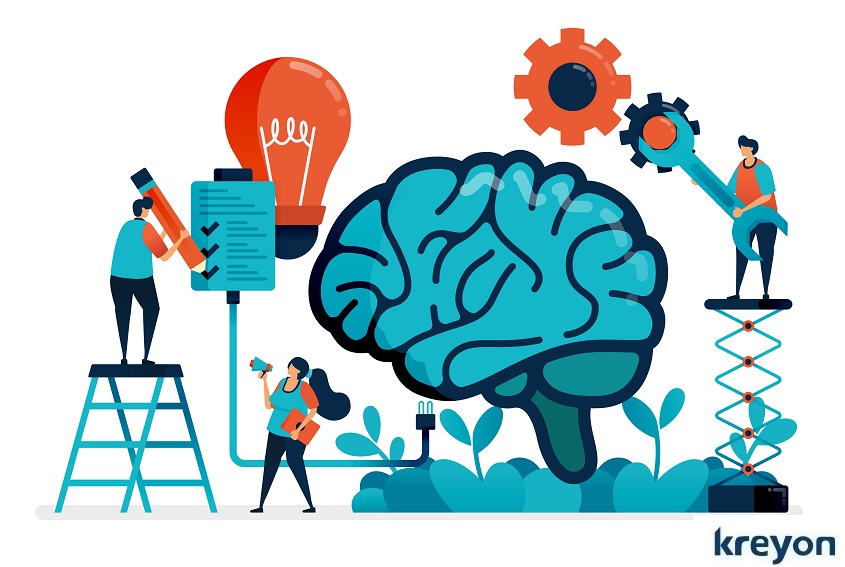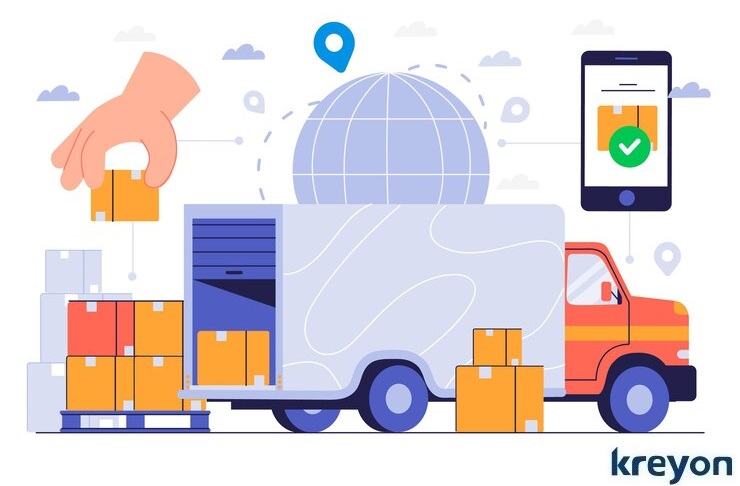AI-driven ERP for Supply Chain Optimization: Real-time Insights and Adaptive Planning

Traditional Enterprise Resource Planning (ERP) systems, while robust, often struggle to keep pace with the lightning-fast demands of modern commerce. So, how do we unlock the next level of supply chain optimization? The answer is AI-driven ERP.
Supply chains act as the lifeblood of operations, staying ahead of the curve is essential. Enter the era of AI-driven ERP systems, a technological marvel transforming supply chain management into a dynamic, responsive, and predictive force.
Here, we’ll explore how Artificial Intelligence is reshaping the landscape of Supply Chain Optimization through real-time insights and adaptive planning.
Introduction: Navigating the Complex Supply Chain Terrain
Supply chains are intricate networks that involve the seamless coordination of various elements, from raw material procurement to manufacturing, distribution, and delivery.
Any disruption along this intricate web can have ripple effects, impacting productivity, costs, and customer satisfaction.
Traditional ERP systems have played a crucial role in managing these processes, but the advent of AI has brought a paradigm shift, enabling businesses to proactively address challenges and optimize their supply chains like never before.
From Static Silos to Dynamic Ecosystems:

Think of traditional ERP as a collection of spreadsheets, each holding bits and pieces of information – inventory levels, supplier contracts, logistics updates, all isolated snapshots in time. AI-powered ERP shatters these silos, stitching them together into a dynamic ecosystem.
Real-time data from sensors, IoT devices, and market feeds flow like lifeblood, constantly refreshing the picture and revealing hidden patterns.
Imagine a dashboard that not only tells you how many widgets you have in stock but also predicts demand fluctuations, pinpoints potential disruptions, and suggests proactive adjustments – that’s the power of AI.
Real-time Insights: Unveiling the Power of AI in ERP Systems
One of the key strengths of AI-driven ERP lies in its ability to provide real-time insights into every facet of the supply chain. Traditional ERP systems often rely on historical data, offering a retrospective view of operations.
AI, on the other hand, leverages advanced algorithms and machine learning to analyze vast datasets instantly. This enables businesses to make data-driven decisions in the present moment, identifying potential bottlenecks, predicting demand fluctuations, and optimizing resource allocation on the fly.
Imagine a scenario where AI algorithms analyze real-time sales data, customer feedback, and market trends. The ERP system, empowered by AI, can swiftly recognize patterns and make accurate predictions about future demand.
This foresight allows businesses to adjust inventory levels, production schedules, and distribution routes in anticipation of market shifts, ultimately minimizing stockouts and excess inventory.
Adaptive Planning: Harnessing the Predictive Power of AI

In the dynamic landscape of supply chain management, adaptability is a prized asset. AI-driven ERP systems excel in adaptive planning, offering businesses the agility needed to respond to unforeseen events.
Whether it’s sudden changes in customer preferences, supply chain disruptions, or unforeseen market trends, AI continuously analyzes incoming data and adjusts plans accordingly.
For instance, an AI-infused ERP system can automatically reroute shipments based on real-time traffic conditions, weather forecasts, or even geopolitical events.
This level of adaptive planning ensures that businesses can maintain optimal efficiency even in the face of unexpected challenges. This adaptive planning empowers businesses to:
Quickly reroute shipments around unforeseen obstacles, minimizing delays and ensuring deliveries stay on schedule.
Dynamically adjust production schedules to match changing demand, avoiding costly overproduction and stockouts.
Negotiate with suppliers in real-time based on market fluctuations, securing better deals and protecting margins.
Optimize pricing strategies on the fly to remain competitive in a dynamic market.
Reducing Risks and Enhancing Resilience
Supply chain disruptions, such as natural disasters, economic downturns, or global health crises, are inevitable. However, AI-driven ERP systems empower businesses to mitigate risks and enhance resilience.
Through predictive analytics, these systems can identify potential vulnerabilities within the supply chain and recommend strategies to minimize the impact of disruptions.
Moreover, AI can enhance supplier relationship management by evaluating supplier performance in real-time. This allows businesses to identify and address potential issues before they escalate, ensuring a more stable and reliable supply chain.
The Human-AI Collaboration: Fostering Efficiency and Innovation

The true magic of AI-powered ERP lies in its predictive capabilities. Machine learning algorithms analyze vast amounts of data, uncovering trends and anomalies invisible to the human eye.
AI-driven ERP systems are not meant to replace human expertise; instead, they act as invaluable tools that complement human decision-making.
By automating routine tasks, such as data analysis and inventory management, AI frees up valuable human resources to focus on strategic planning, creativity, and innovation.
This symbiotic relationship between humans and AI fosters a culture of continuous improvement and adaptation.
Implementing AI-driven ERP for Success
Embracing AI-driven ERP is an ongoing process that yields measurable outcomes for your business success. Here are some key steps for a successful implementation:
Identify your biggest supply chain challenges: Define the areas where AI can have the most significant impact.
Choose the right partner: Invest in a reliable ERP provider with proven expertise in AI integration.
Prepare your data: Ensure data quality and accessibility for seamless integration with AI algorithms.
Train your team: Build internal understanding and ownership of the new technology.
Start small and scale gradually: Implement AI in phases, building confidence and refining your approach.
Conclusion: The Future of Supply Chain Management
The integration of AI into ERP systems marks a pivotal moment in the evolution of supply chain management.
Real-time insights and adaptive planning capabilities empower businesses to navigate the complexities of the modern business landscape with unprecedented efficiency and foresight.
As businesses embrace AI-driven ERP solutions, they position themselves not only to survive but to thrive in an era where adaptability and intelligence are the keys to sustained success. The future of supply chain management is here, and it’s driven by the transformative power of Artificial Intelligence.
Kreyon Systems is a leading ERP Software implementation company for enterprise customers. If you have any queries or need help in implementation of ERP Software, please reach out to us.
